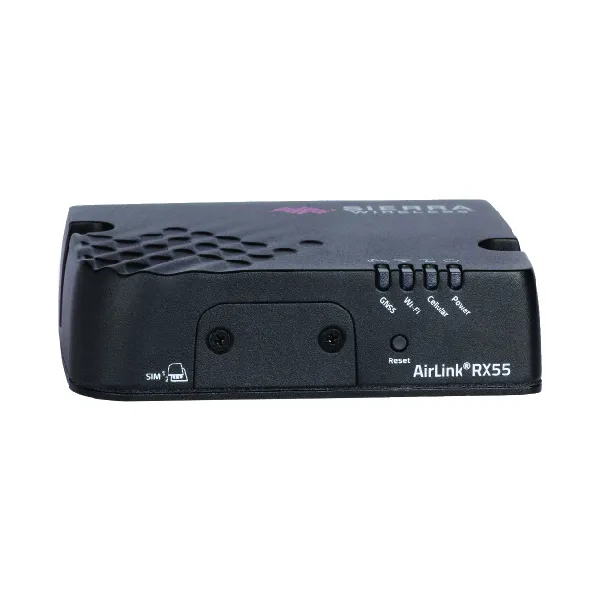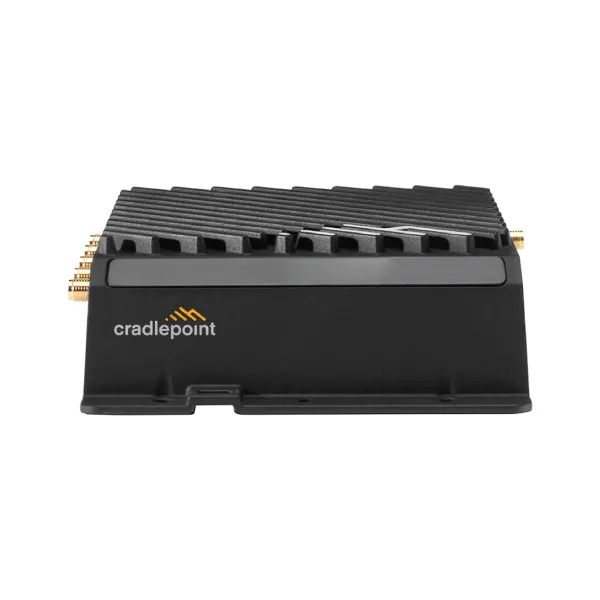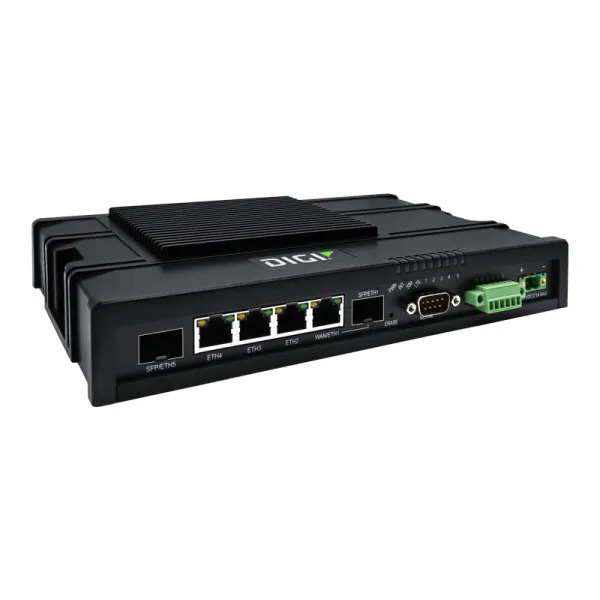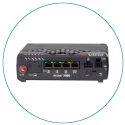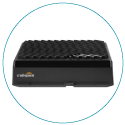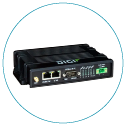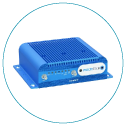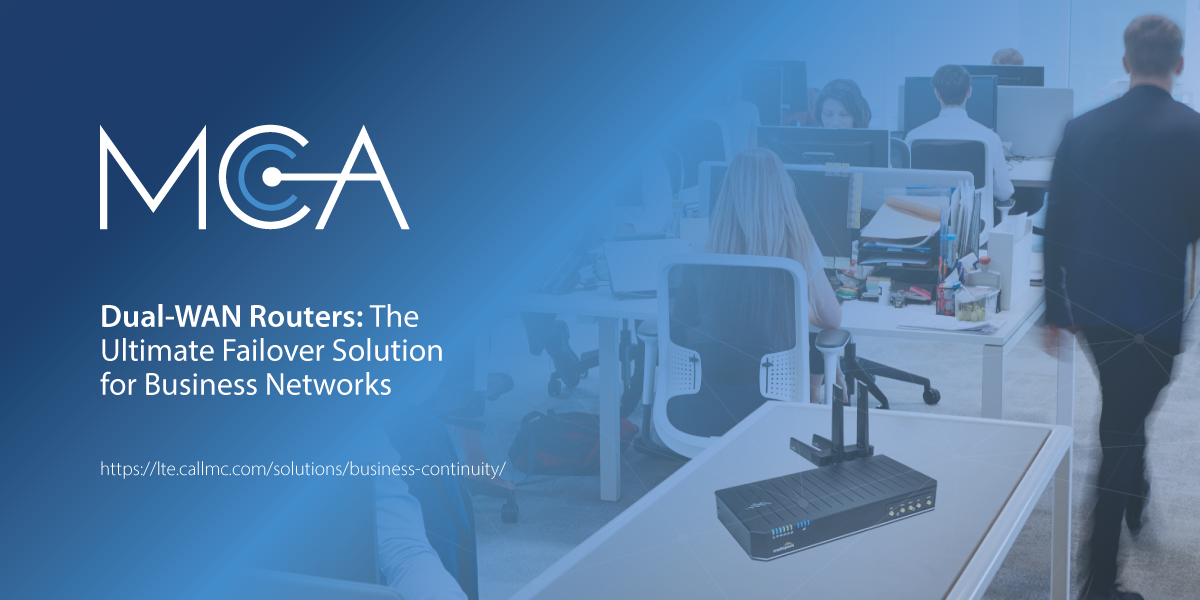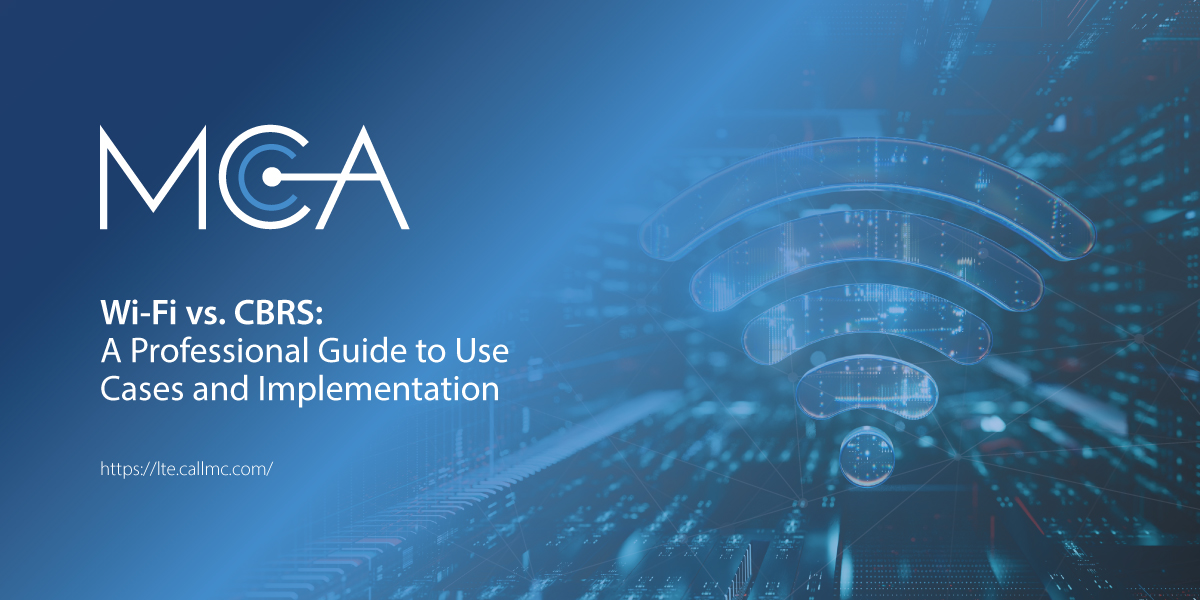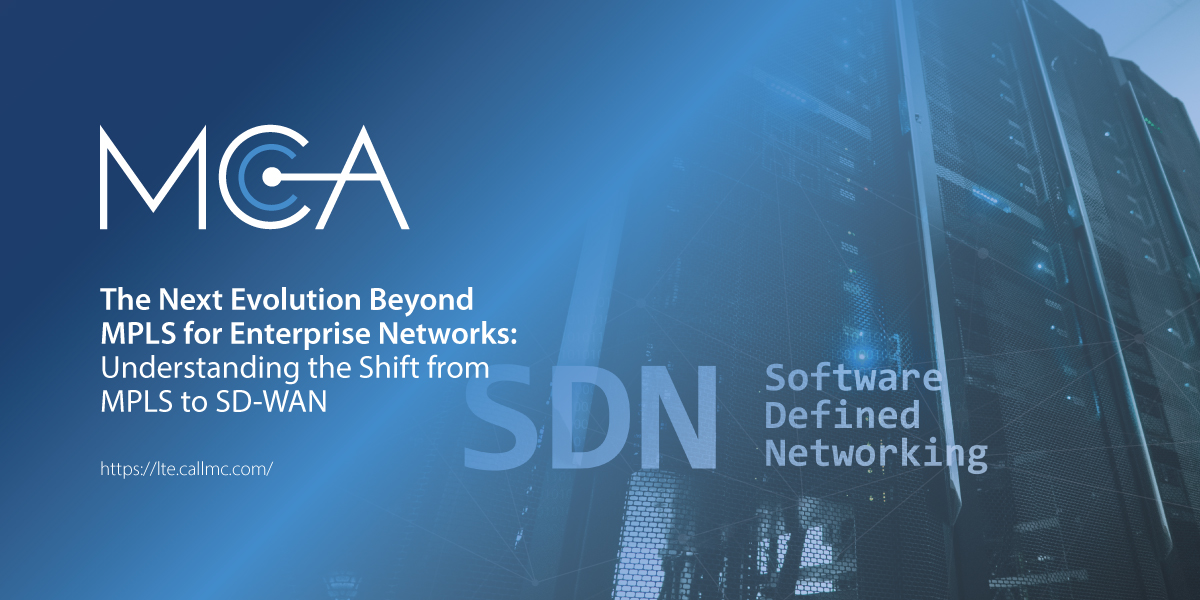What Are Containers?
“Containers" refer to the capability of a device to utilize lightweight, portable software packages. Specifically developed for edge computing, newer industrial cellular routers come equipped with the storage and processing power needed to run a piece of software - including the code, a runtime, libraries, environment variables, and tools. These containers allow applications to run consistently across different environments, such as development, testing, and production, without any changes.
When it comes to cellular routers in edge computing, containers enable the deployment of applications directly on the router. This means that instead of running applications on separate servers back at your data center or via cloud platforms, they can be packaged into containers and executed on the cellular router itself.
Leveraging cellular edge routers for container-based applications not only reduces initial infrastructure investments but also results in ongoing cost savings related to reduced bandwidth usage, minimized latency, optimized network traffic, enhanced scalability, improved reliability, and lower maintenance requirements.
Utilizing containers offers several advantages for edge computing, including:
Portability
Containers can run on various types of routers, providing flexibility in choosing hardware while ensuring consistent application performance.
Efficiency
Since they’re lightweight and consume fewer resources compared to traditional virtual machines, containers allow for efficient use of the router's processing power and memory.
Isolation
Using containers establishes isolation between applications, ensuring that one application's operation does not affect others and enhancing security and stability.
Scalability
Containers can be easily scaled up or down based on demand, allowing for dynamic adjustments to the computing resources allocated to each application.
Simplified Deployment
Applications packaged as containers can be easily deployed, updated, and managed, streamlining the deployment process and reducing downtime.

Containers in the context of edge computing with cellular routers enable the seamless and efficient deployment of applications directly on the router devices, enhancing flexibility, security, and scalability in edge computing environments.
What Are The Primary Benefits Of Containers?
Running container-based applications on cellular edge routers can result in significant cost savings compared to running those applications in centralized servers for several reasons:
Enhanced Reliability
Cellular edge routers operate autonomously, ensuring continuous operation even if the central server experiences downtime. This reliability reduces the costs associated with service interruptions and system failures.
Reduced Infrastructure Costs
Cellular edge routers are typically deployed closer to the data source, eliminating the need for extensive data center infrastructure. This reduces the costs associated with building, cooling, and maintaining large server rooms or data centers.
Lower Maintenance Costs
Edge devices, such as cellular routers, are often designed for rugged environments and require minimal maintenance. Centralized servers, on the other hand, may require more frequent maintenance, leading to higher operational costs.
Lower Bandwidth Costs
Transmitting data from sensors or devices to a centralized server often incurs high bandwidth costs, especially when dealing with large volumes of data. Edge computing with local containers minimizes the amount of data that needs to be transmitted over the network, reducing bandwidth usage and associated costs.
Minimized Latency
Edge computing processes data locally, reducing the time it takes for data to travel between the data source and the processing location. This low latency is crucial for applications that require real-time or near-real-time processing. Centralized servers located farther away introduce higher latency due to longer data travel times.
Optimized Network Traffic
By processing data locally on cellular edge routers, only relevant information needs to be sent to the central server, reducing unnecessary network traffic. This optimization lowers data transfer costs and ensures efficient use of network resources.
Improved Scalability
Edge computing allows for distributed scaling. Additional edge devices can be added to the network as needed, providing a scalable solution without the need for massive upgrades to centralized servers. This scalability is often more cost-effective than constantly expanding centralized server capacities.
Container Capable Routers
At USAT, we grasp the nuances of containers and embedded application development, unlocking the full potential of your cellular routers. Our dedicated professional services team excels in creating customized IoT engineering solutions. We seamlessly integrate embedded applications into containers, deploying them at the edge to enhance your device capabilities with precision and expertise.
We offer a number of container capable routers, including:
Sierra Wireless AirLink RX55 Router
The AirLink® RX55 is an Industrial Internet of Things (IIoT) solution designed for ultra-low power consumption and robust performance in harsh environments, making it a versatile and reliable choice for demanding industrial scenarios. Equipped with advanced networking features and support for industry-standard containers, the RX55 ensures the secure delivery of critical intelligence at the network edge that extends to mission-critical applications on both public and private networks.
Cradlepoint R920
Cradlepoint’s R920 Series is a highly versatile LTE router designed to address a broad spectrum of use cases. This router is ideal for organizations involved in mass transit, public safety, and more, as it offers flexible connectivity and standardization. It features support for a 5G modular modem, edge computing, Bluetooth, and CBRS, empowering these organizations to achieve reliable and secure networking solutions.
DIGI IX40
Designed specifically for Industry 4.0, the Digi IX40 offers robust support for 5G connectivity and edge intelligence, making it a versatile tool for a wide range of applications. From predictive maintenance and asset monitoring to machine learning and advanced robotics, it addresses diverse use cases. This router efficiently connects multiple machines in the most challenging environments. It streamlines complex operations and facilitates the scalability of information technology (IT) infrastructure by optimizing the integration of cloud-delivered operational technology services.
About MCA and Our CNS Team
MCA is one of the largest and most trusted integrators in the United States, offering world-class voice, data, and security solutions that enhance the quality, safety, and productivity of customers, operations, and lives. More than 65,000 customers trust MCA to provide carefully researched solutions for a safe, secure, and more efficient workplace.
Our Cellular Networking Solutions (CNS) team (formerly known as USAT) is made up of certified experts in designing and deploying fixed and mobile wireless data connectivity solutions for public and private enterprises nationwide - complete with implementation, training, proof of concept (POC), system auditing, and on-site RF surveying services with optional engineering maintenance contracts.
Our extensive catalog of world-class routers, gateways, and software designed for remote monitoring and management in even the harshest environments allows us to deliver a full suite of reliable technologies capped with a service-first approach.
Share this Post


